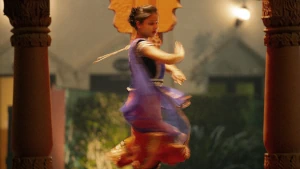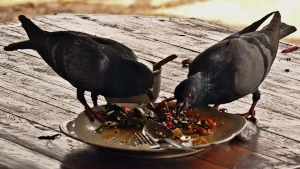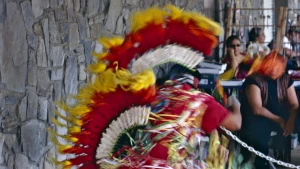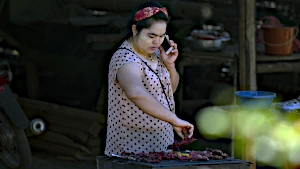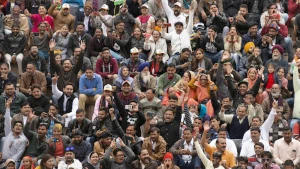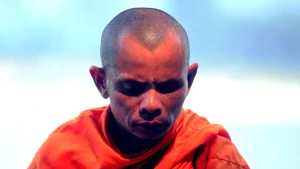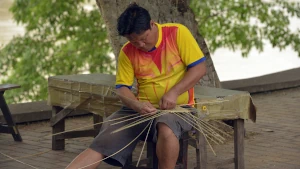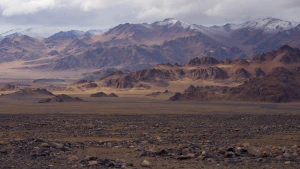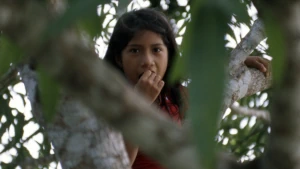Opinion Editorial April, 2025: Sequels
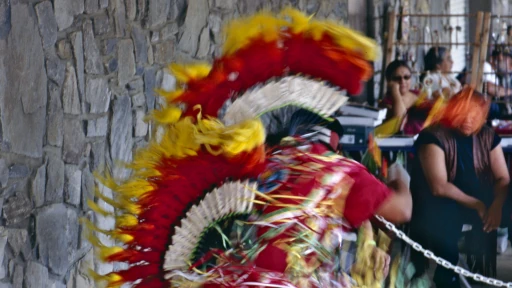
Even when I enjoyed the original, I tend to find movie sequels disappointing. One example is War Games: The Dead Code (2008). The plot is almost identical to the original. Maybe we need a new sequel: War Games: The Lessons from Ukraine.
One movie that certainly needs no sequel is Hidden Figures (2016). It tells the stories of Katherine Johnson, Dorothy Vaughan and Mary Jackson. They each played a critical role in the early years of the American space program, including the Apollo Moon landings. There must be similar, uplifting true stories, but any sequel would surely not live up to the original.
The sequel to Apollo is Artemis. That program, which is currently aiming to return people to the Moon in 2027 under the Artemis III mission, had long stated its intention eventually to land both a woman and a non-white person on the Moon. Only a few days ago, NASA removed that statement of intent from its website. Although those two individuals had not been named, they are now literally hidden figures.
While only white, American men have ever been to the Moon, the almost twenty-five-year history of the International Space Station has included many non-white, non-American and female inhabitants. In fact, the ISS has had so many and diverse inhabitants, they no longer form an exclusive group.
EGOTs, though, are a very exclusive group: Only twenty-seven people have won at least one each of the Emmy, Grammy, Oscar and Tony awards. The two most recent EGOTs were inaugurated on September 8, 2024. On that date, Sunita "Suni" Williams was living on the ISS. Last month, she became one of only two SSSSDs in history (alongside Barry "Butch" Wilmore). SSSSDs are people who have traveled between Earth and the ISS at least once on each of the four crewed spacecraft that have ever made that journey: Soyuz, Space Shuttle, Starliner and Dragon. With the Space Shuttle long retired and the future of Starliner in question, their status as the only two SSSSDs is almost guaranteed.
Sometimes, exclusivity is a greater achievement than inclusivity. Still, most of the mainstream media ignored their feat last month in favor of clickbait headlines about their having been stranded for nine months. We have never needed a sequel to Lost in Space but we got another one anyway last month.
Another movie that needs no sequel is The Imitation Game (2014). Alan Turing belonged to an exclusive group of one by believing that the German Enigma code could be broken in World War Two. He was right.
In contrast, in both world wars (and the Korean War) the United States military needed a code that could not be broken — and, since it was based on indigenous American languages, it never was. The movie for that is Windtalkers (2002) and it also needs no sequel. A story of historic fiction, it is accurate, if shallow, in its portrayal of exclusive, indigenous Navajo code talkers during World War Two.
The Navajo were not the only war-time code talkers. The Cherokee were also among the American indigenous groups that served in that role. The Cherokee man in this month's photo is not a war-time code talker. But he does include Cherokee code dancers in his ancestry: Anthropologists have documented extensively the "codes" embedded within indigenous dance movements.
Johnson, Vaughan and Jackson were, and Williams is, "diverse" in the US due to their ethnicity. Indigenous code talkers were "diverse" there due to both their ethnicity and their languages. Turing was "diverse" due to both his genius and his sexual orientation. The two unnamed, future Artemis astronauts were to be as "diverse" as possible from those who have been to the Moon. They all represent populations who have and continue to be treated inequitably.
None of them was a "DEI appointee," Yet last month saw an onslaught of attempts in the US to remove such "DIE (diverse, inequitably-treated and exclusive) appointees" from history under the pretense of fighting DEI. The Artemis removal was intentional. But removing references to indigenous code talkers (among other, similar removals) was largely the result of an AI-driven frenzy to officially eliminate "DEI" references wholesale from US history. Although some of the removed content is now slowly being restored (after a justified backlash), it confirms two things we already knew: AI often grossly hallucinates; removing then restoring published copy is not the most efficient way to run a government.
When Richard Carpenter wrote: "We've only just begun...", last month's events were not what he had in mind.
If you enjoyed reading this month's opinion editorial, please consider supporting independent, advertising-free journalism by buying us a coffee to help us cover the cost of hosting our web site. Please click on the link or scan the QR code. Thanks!

